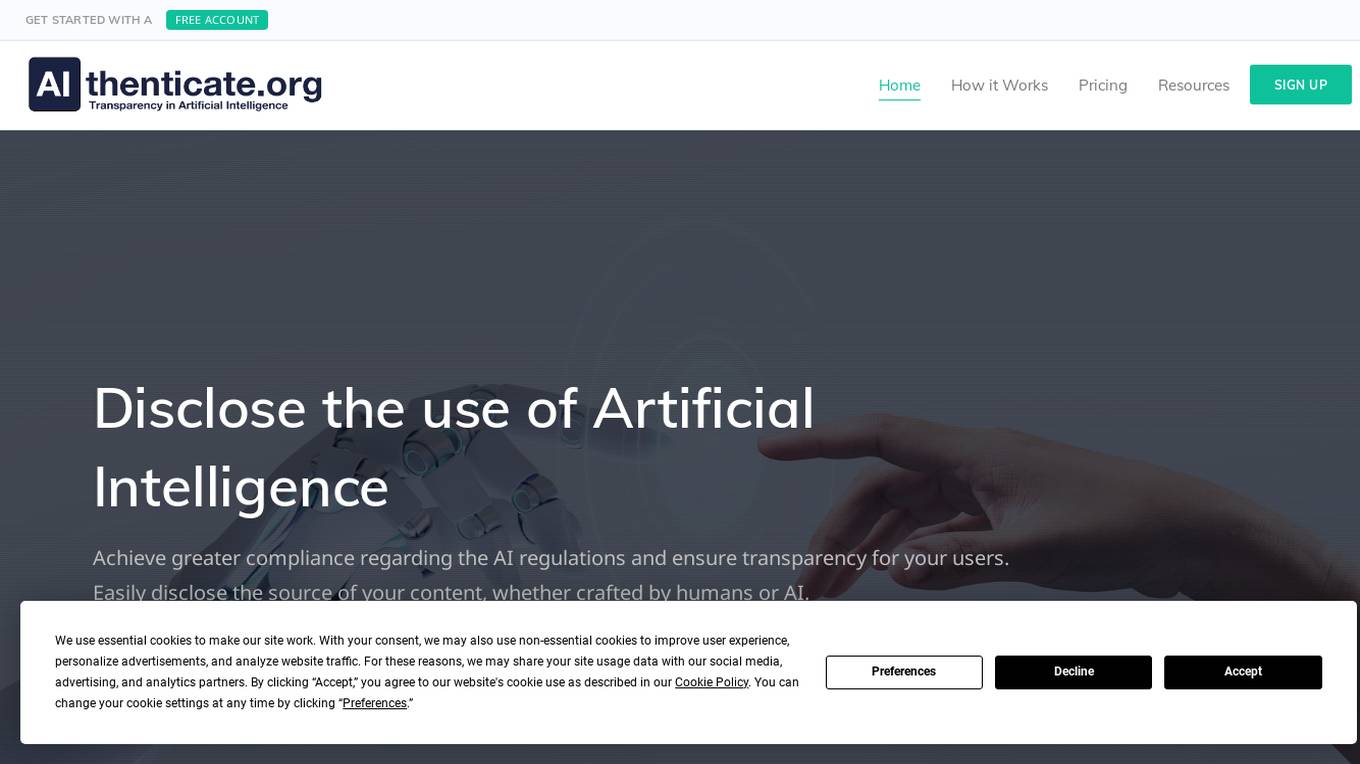Best AI tools for< Disclose Content Origin >
2 - AI tool Sites

Aithenticate
Aithenticate is a platform that focuses on transparency in Artificial Intelligence (AI) usage. It helps users achieve greater compliance with AI regulations and ensures transparency by disclosing whether content is generated by humans or AI. The platform offers a WordPress plug-in for easy integration, a company profile page with detailed AI disclosure, an AI disclosure generator, and clear icons to signify AI or human-generated content. Aithenticate aims to enhance peace of mind, trust, and clarity for users interacting with AI-generated content.

Waitlyst.co
Waitlyst.co is a website that is currently under development and not yet launched. The domain is registered at Dynadot.com and is expected to be live in the future. The purpose and functionality of the website are not disclosed in the provided text, but it seems to be related to managing waitlists or reservations for events, services, or products. The website is expected to offer a platform for users to create and manage waitlists efficiently.